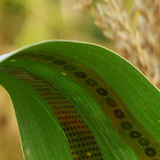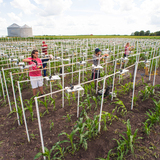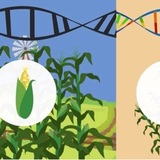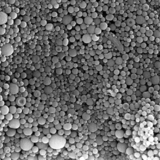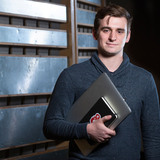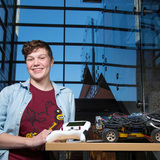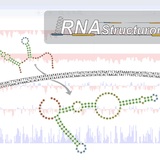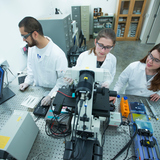News Archive
Wednesday, January 3 2018
-
Engineers make wearable sensors for plants, enabling measurements of water use in crops
Iowa State's Liang Dong is leading development of graphene-based, sensors-on-tape that can be attached to plants and can provide data to researchers and farmers about water use in crops. The technology could have many other applications, including sensors for biomedical diagnostics, for checking the structural integrity of buildings, for monitoring the environment and, with modifications, for testing crops for diseases or pesticides.
-
WHO gaming addiction classification an important step for treatment, says ISU prof
The World Health Organization has classified video game addiction as a mental health disorder. Iowa State professor Douglas Gentile says the WHO's decision is an important step in getting people the help they need.
-
Media Advisory: Iowa State developing plans to advance Iowa's bioscience economy
A consultant's report released Dec. 19 recommends ways lawmakers can invest in the biosciences to help grow the state's economy. Iowa State University leaders are preparing to advance the effort by promoting research in biobased chemicals; precision and digital agriculture; and vaccines and immunotherapeutics.
-
2017 Year in Review
As 2017 comes to an end, the Iowa State University News Service staff is looking back and sharing some of its favorite and more popular stories of the year.
-
Corn genetics provides insight into the crop’s historical spread across the Americas
Evolutionary bottlenecks brought on by domestication have caused the genome of corn to retain harmful mutations over the course of millennia, according to a new study from an Iowa State University scientist. The study takes a journey through the past by studying genetic changes in corn.
-
Researchers developing, testing nanovaccine to protect against the flu virus
A team of researchers working across disciplines and universities is developing a flu nanovaccine that preliminary studies suggest could be more effective than today's seasonal shots. The National Institutes of Health is supporting the research with a five-year, $2.8 million grant. The project is a good example of how the Nanovaccine Institute based at Iowa State University is designed to work.
-
Iowa State University animal science researcher honored for genetic discoveries
An Iowa State University animal geneticist was one of several scientists named a Fellow by the National Academy of Inventors. Max Rothschild, a C.F. Curtiss Distinguished Professor in Agriculture and Life Sciences and the Ensminger Endowed Chair of International Agriculture, received the recognition for discoveries in swine genetics that have saved pork producers and processors money and increased meat quality for consumers.
-
Adversity pushes Iowa State senior to find new direction in pursuit of degree
A conversation in a bowling alley helped Nik Heftman land a job with CBS News in New York. For a guy who faced his share of obstacles to earn a degree, he felt his hard work had finally paid off.
-
Iowa State senior sees health setback as ‘a blessing in disguise’
Kevin Burgoni was on track to graduate from Iowa State University in four years, until a sudden and scary health situation changed his timeline.
-
Science Bound served as the springboard for biology grad's adventure
First-generation Iowa State graduate Grace Ansah fell in love with biology, and plans to go to medical school -- with a side trip to her family's homeland in Ghana first.
-
Software engineer's route to success: Passion
Software engineer Anne Tesar is driven for adventure. After a whirlwind undergraduate experience inside and outside the classroom, she's headed to a job on Microsoft's graphics team following graduation.
-
New online database brings the genome into focus using molecular structure
An online database built by Iowa State University scientists provides a new tool with which researchers can study human biology. The database is freely accessible to anyone on the web, where it allows scientists to study the functions and structure of RNA with greater speed and ease than in the past.
-
Chemist studying electric fields, microfluidics to improve dialysis technology
Iowa State University's Robbyn Annand is studying how a hybrid of electrochemical and microfluidic technologies could be used to improve the dialysis equipment that cleans salt, waste and water from blood. That technology could enable a wearable, artificial kidney. And that could benefit her brother, who depends on today's big and heavy dialysis equipment.
